Helping Entrepreneurs Build Wealth While Living Their Dreams
Our Proven Process
A franchise consultant plays a critical role in guiding prospective franchisees through the process of selecting, purchasing, and operating a franchise. Their primary goal is to help individuals make informed decisions by matching them with the right franchise opportunities that align with their goals, skills, and financial resources. Below is a detailed overview of the franchise consultant process, broken down into stages:
Step 1
Step 2
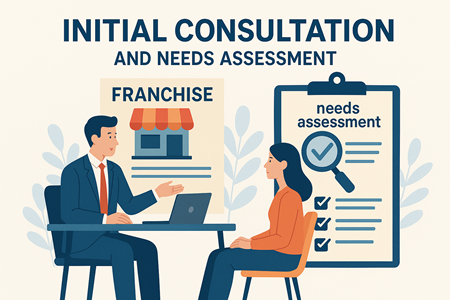
Initial Consultation and Needs Assessment
The process typically starts with an initial consultation, where the franchise consultant seeks to understand the potential franchisee’s background, goals, financial situation, and business preferences. This may involve asking questions such as:
- What level of involvement do they want in day-to-day operations?
- What is the individual’s professional background?
- Why are they interested in owning a franchise?
- What industries or types of businesses are they interested in?
- What is their budget and financial capacity?
- Are they interested in a full-time or semi-absentee ownership model?
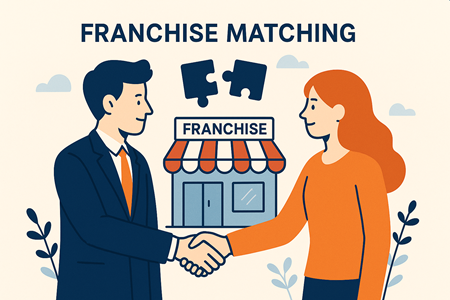
Franchise Matching
Once the franchise consultant has a clear understanding of the client’s needs, the next step is to match the client with appropriate franchise opportunities. Franchise consultants often work with a variety of franchise brands across different industries and have access to a network of available opportunities.
Key Elements of Franchise Matching:
- Industry Preference
- Investment Level
- Business Model
- Geographical Considerations
The consultant will present several options for the client to consider, often accompanied by detailed information about the franchise’s brand, financials, support systems, and growth potential.
Step 3
Step 4
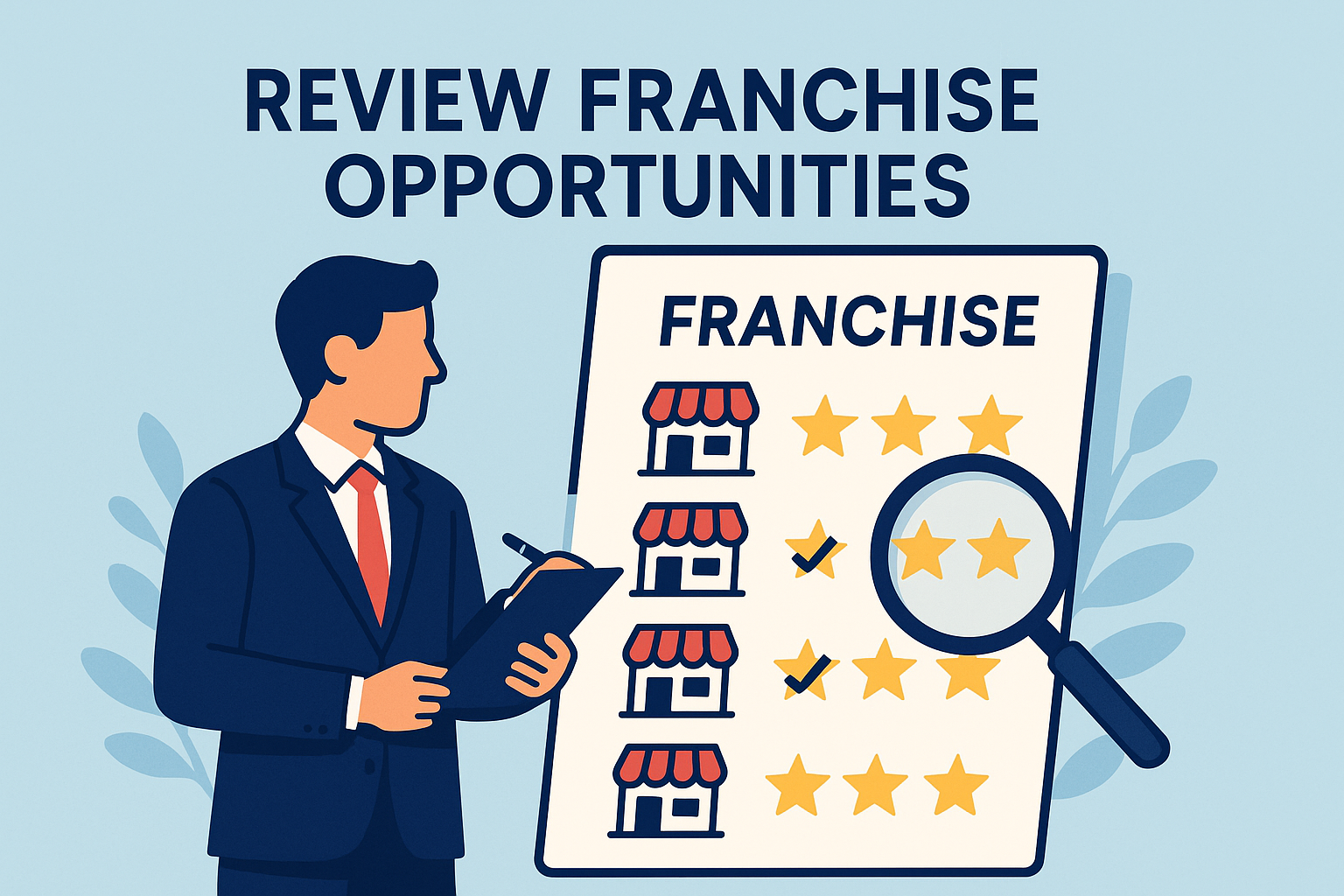
Review of Franchise Opportunities
Once potential franchise options are narrowed down, the consultant will guide the client through a thorough review process. This involves examining critical elements such as:
- Franchise Disclosure Document (FDD): A legal document that provides detailed information about the franchise, including fees, costs, obligations, and potential risks.
- Financial Performance Representation: The consultant will help the franchisee understand the financial performance of the franchise, reviewing past performance, revenue potential, and cost structures.
- Franchise Fee and Royalties: The consultant ensures the franchisee understands the ongoing financial obligations, including royalties, advertising fees, and any other recurring payments to the franchisor.
- Territorial Rights: Some franchises offer exclusive territories to franchisees, while others may allow multiple franchisees to operate in the same area. The consultant will ensure the client understands their territorial rights.
- Training and Support Systems: Franchise consultants provide guidance on the training and ongoing support offered by the franchisor, including how extensive the training program is and the level of support the franchisee can expect.
This is an important step, as it allows the franchisee to gather all the necessary information to make an informed decision.
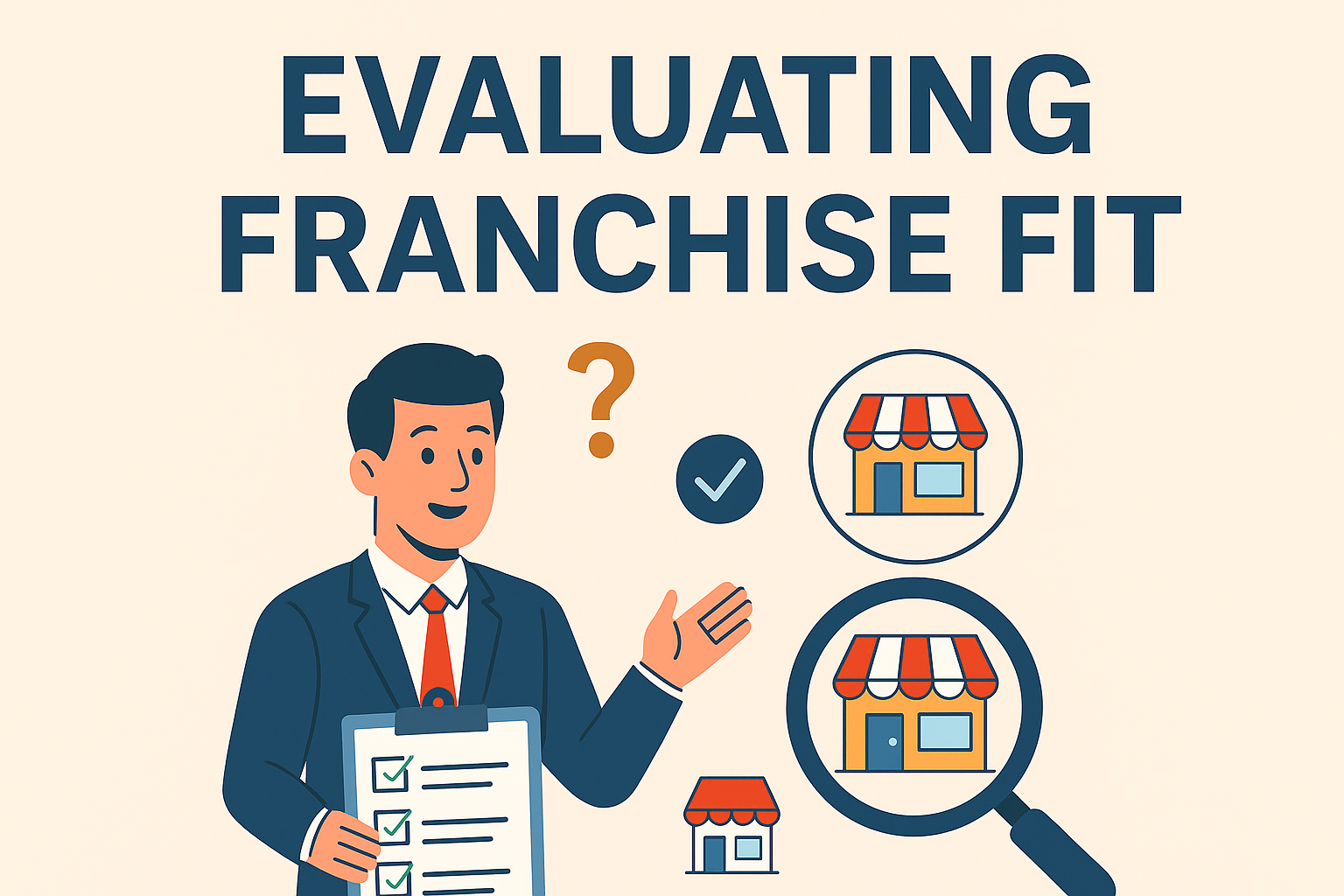
Evaluating Franchise Fit
At this stage, the franchise consultant will work with the client to evaluate which franchise is the best fit. This process may involve discussions around:
- Alignment with Goals: Does the franchise align with the client’s personal and professional goals?
- Investment Capacity: Does the client have the necessary funds to cover the franchise fee, equipment, real estate, and other associated costs?
- Risk Tolerance: Is the franchise opportunity in an industry that the client is comfortable with, and does it offer a realistic risk-reward profile?
- Franchise Culture: Does the franchise culture align with the client’s values and working style? Many franchisees prefer working with brands that reflect their values.
The consultant will also assist in helping the client weigh the pros and cons of each option to make an educated choice.
Step 5
Step 6
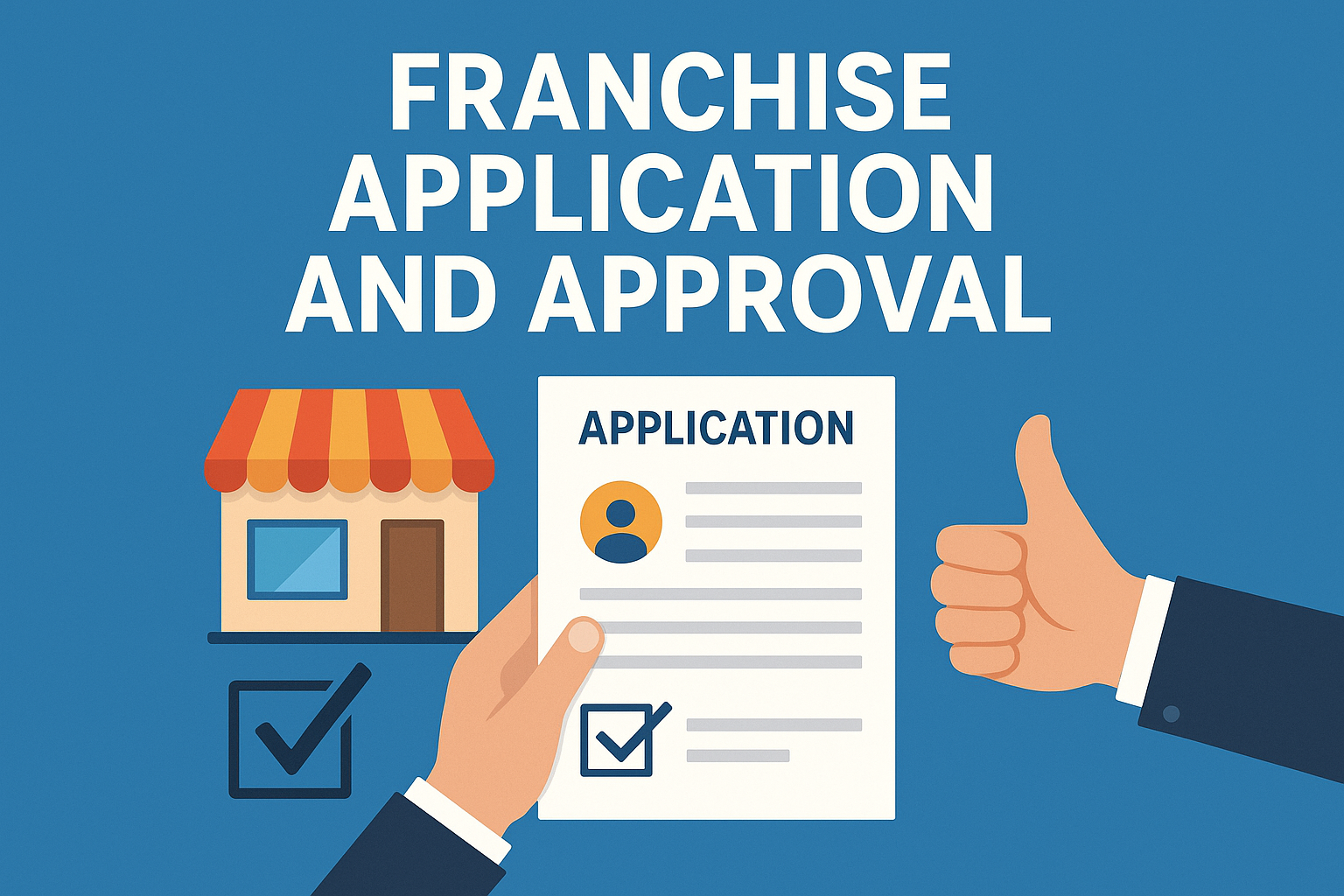
Franchise Application and Approval
Once the franchisee has decided on a particular franchise, the next step is to complete the application process. The consultant helps the client navigate the following steps:
- Application Submission: The consultant will assist with submitting the franchise application, which may include providing personal and financial background information.
- Background Check and Interview: Many franchisors require background checks to ensure the applicant has the right qualifications, financial standing, and experience to operate the franchise. The consultant may help prepare the client for these interviews and discussions.
- Franchisee Interview: The franchisee will often have an interview with the franchisor to discuss the applicant’s goals, experience, and commitment to the franchise. The consultant can help the franchisee prepare for these interviews.
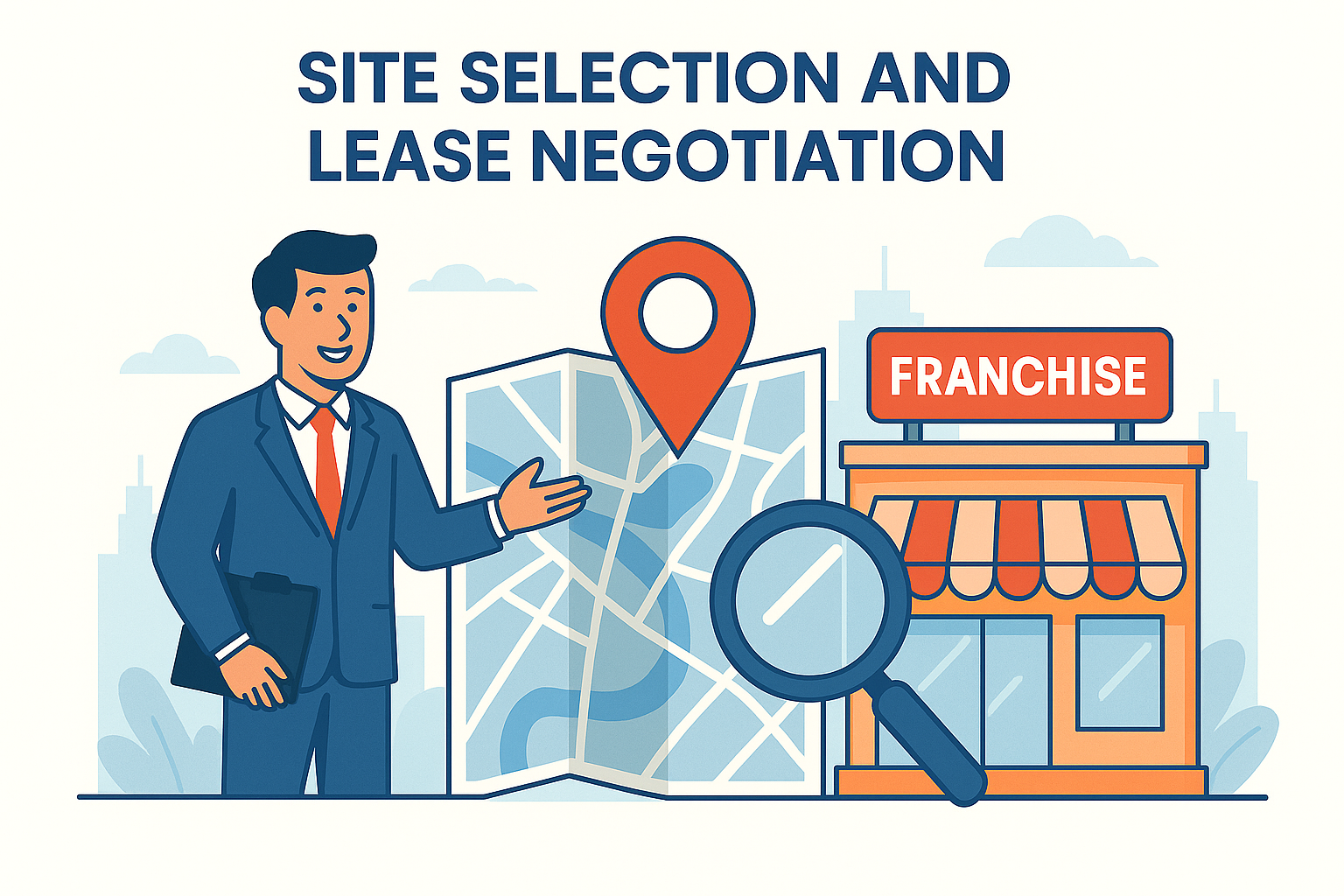
Site Selection and Lease Negotiation
For many franchises, selecting a physical location is a critical step in the process. The franchise consultant can assist with site selection, helping the client find a location that aligns with the franchise’s requirements and maximizes the potential for success. This process includes:
- Evaluating Location Demographics: Assessing the location’s foot traffic, accessibility, local competition, and demographic factors to ensure it’s a good match for the franchise.
- Real Estate Negotiation: In some cases, the franchise consultant will assist with negotiating the lease or purchase terms for the commercial property.
- Franchise Guidelines Compliance: Ensuring that the location meets the franchisor’s specifications for store layout, branding, signage, etc.
Step 7
Step 8
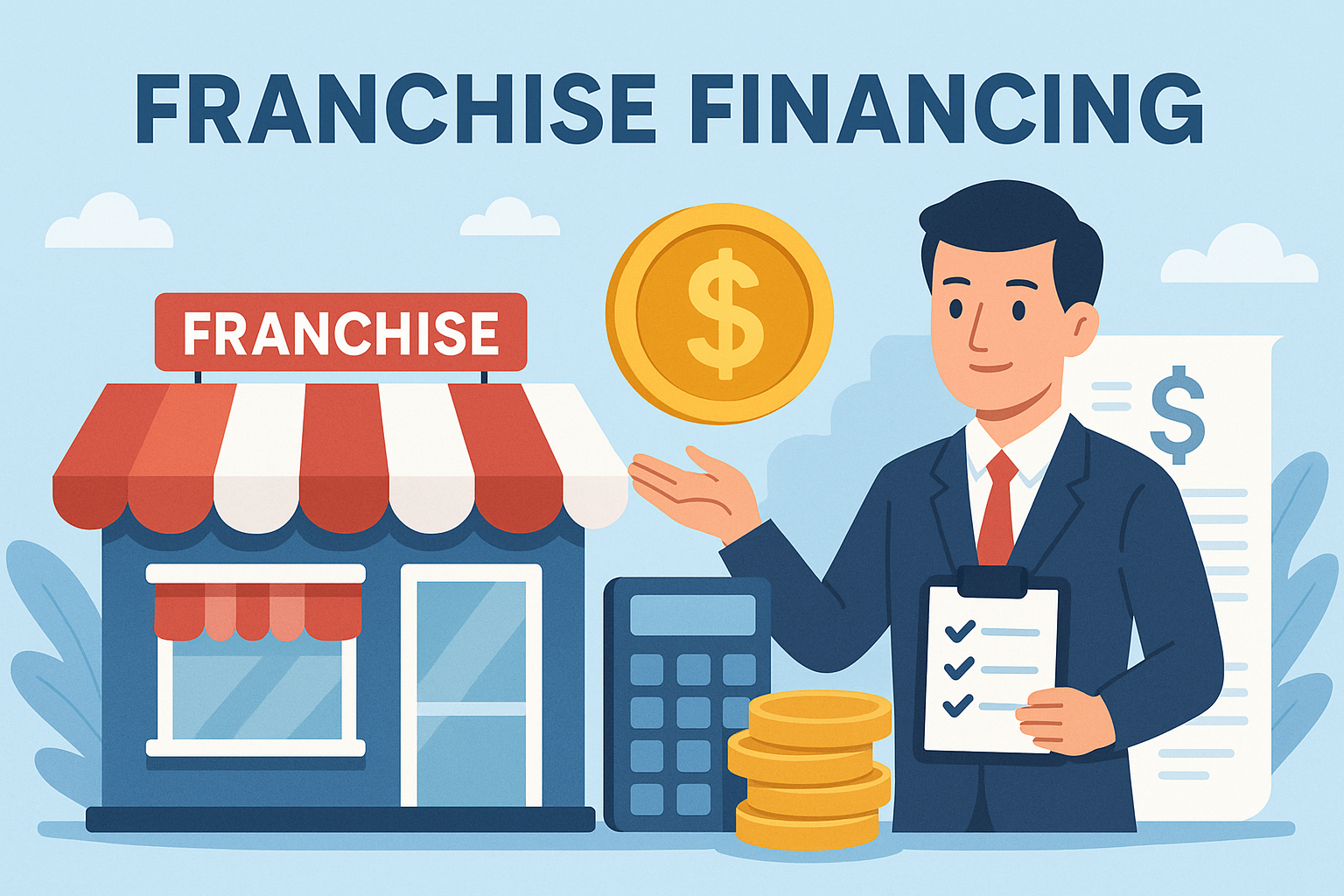
Financing Assistance
Securing financing for a franchise purchase can be a complicated process. A franchise consultant can help guide the potential franchisee through various financing options:
- Traditional Loans: The consultant can assist in applying for business loans, helping the franchisee understand the financial requirements.
- SBA Loans: Many franchisees use the Small Business Administration (SBA) loan program to finance their business. The consultant can explain how SBA loans work and help the client through the application process.
- Franchisor Financing: Some franchisors offer in-house financing options, and the consultant will make sure the client is aware of any such offerings.
- Alternative Financing: For those who may not qualify for traditional loans, the consultant might help explore alternative financing methods, such as lines of credit, angel investors, or other sources of capital.

Training and Onboarding
After securing financing and signing the franchise agreement, the franchisee enters the training and onboarding phase. This includes:
- Franchise Training Program: The franchisor provides training on the operational aspects of the franchise, including sales, marketing, hiring employees, and financial management.
- Support Structure: The franchise consultant will continue to support the franchisee during the initial stages of the business by ensuring they have access to ongoing support from the franchisor and that they are prepared for opening day.
- Operations Manual: A detailed operations manual is typically provided to guide franchisees in running their businesses, and the consultant helps ensure they understand all the processes involved.
Step 9
Step 10

Ongoing Support
Even after the franchisee has opened their business, a franchise consultant may remain involved to provide ongoing support. This might include:
- Performance Tracking: The consultant may help the franchisee assess their business performance, compare it with industry benchmarks, and offer strategies to improve.
- Additional Resources: Ongoing training, marketing support, and operational assistance may be needed, and the consultant ensures the franchisee has access to these resources.
- Troubleshooting: In case of challenges or difficulties, the consultant may assist the franchisee in addressing issues such as operational inefficiencies, staffing problems, or changes in the market.

Exit Strategy
Eventually, a franchisee may wish to sell or exit the franchise. The consultant can assist with the sale or transfer of the business, ensuring the franchisee follows the franchisor’s guidelines for selling and transitions the business properly.
Conclusion
The franchise consultant process is a step-by-step journey that supports potential franchisees in making informed decisions, ensuring they understand the financial and operational complexities, and guiding them through the entire franchise lifecycle. This process can be invaluable for individuals who want to minimize risk and maximize their chances of success in the competitive world of franchising.
